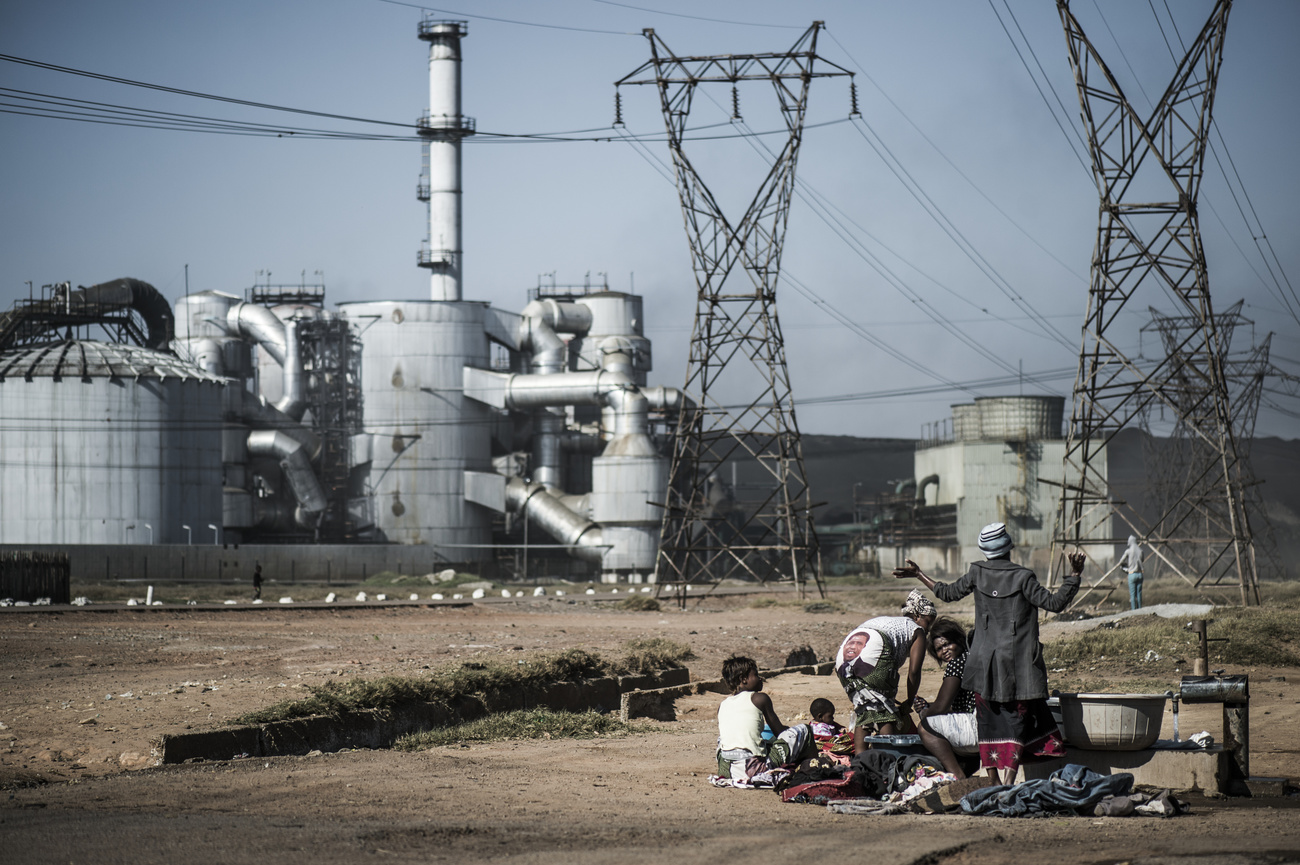
Who has the right to judge multinational companies?
Our analysis of what the biggest global companies in Switzerland are up to. This week: multinationals in the courts, bribery investigation and blockchain promises.
The rejection of the responsible business initiative on Sunday was a disappointment to many people in the country. But it is far from the end of the story.
If anyone had flashbacks to the US election on Sunday, you weren’t alone. A majority (albeit a slim one) of the Swiss people voted in favour of the responsible business initiative while the cantons rejected it, sealing its fate. A system whereby the vote of a citizen from tiny Appenzell Inner Rhodes has 40 times the value of the vote of a citizen from populous Zurich (which voted in favour) has given the political analysts plenty to chew over.
Setting this all aside, there is something to admire about Swiss direct democracy. There was plenty of no-holds barred and expensive campaigning (perhaps another parallel to the US), but throughout it all the Swiss voters had a say on what big companies do far beyond their backyard. The whole process caused voters to reflect on what it means to play host to some of the biggest companies in the world or to buy a watch with gold dug up by artisanal miners in remote regions of Peru.
The initiative was never going to solve all the problems. In the end, it probably raised more questions than provided answers. Reflecting on the vote, a couple of swissinfo.ch readers had a good exchange on our website about who is really responsible for the mess in supply chains and who should be the ultimate judge of them. One reader asked: “Who will have the right to judge or decide under which courts?”

More
Responsible business initiative rejected at the ballot box
The question couldn’t be more appropriate given what is happening at the US Supreme Court this week. It concerns a lawsuit brought on behalf of former child slaves from Mali against Cargill and the US subsidiary of Nestlé.
The plaintiffs have accused the companies of aiding and abetting human rights violations through their active involvement in purchasing Ivory Coast cocoa. They also allege that the multinationals turned a blind eye to the use of slave labour on the farms despite being aware of the practice in order to keep cocoa prices low.
The lawyer for the companies questioned a lawsuitExternal link where the wrong “occurred halfway across the globe”. In response, US Chief Justice John Roberts asked: “what objection would foreign countries have to ensuring that U.S. corporations follow customary international law?”
What do you think? Should we care where multinational companies have their headquarters or where the abuse is committed? Would be interested to hear from you. jessica.davis@swissinfo.ch
What else caught my eye?
The Chinese government has its hands in a lot of Swiss business. According to a Dutch thinktank, the Chinese government has a stake in 53% of Swiss companies acquired by Chinese firms since 2010. Switzerland is seventh when it comes to weight of China’s influence over acquisitions. Swiss commodity firms such as Mercuria were especially a target. This is particularly interesting given concerns around forced labour in XinjiangExternal link, a major source of cotton.
Swiss subsidiaries mixed up in Dutch bribery case. The Swiss attorney general is investigating three Swiss subsidiaries of SBM, a Dutch offshore energy firm, accused of bribing officials in Brazil and Angola among other places. The parent company already settled with US, Dutch and Brazilian officials for over $700 million. SBM’s compliance officer seemed surprised that Swiss authorities would open an investigation now. Swiss officials haven’t mentioned any names but SBM’s chairman over the period in question was a Swiss national.

More
Blockchain for sustainable supply chains: hype or saviour?
Companies are making big bets on blockchain, but risks abound. My colleague Anand Chandrasekhar looked at the new blockchain-based supply chain tracking system being used by multinational companies like Swiss-based Nestlé. The system promises consumers access to an array of supply chain information on farmers, harvest times, storage in warehouses and shipping routes. But the platforms are also creating power imbalances as companies hold the data and decide who gets access to it.
Got a tip? Send me a message: jessica.davis@swissinfo.ch
Thanks for reading.

In compliance with the JTI standards
More: SWI swissinfo.ch certified by the Journalism Trust Initiative





























You can find an overview of ongoing debates with our journalists here . Please join us!
If you want to start a conversation about a topic raised in this article or want to report factual errors, email us at english@swissinfo.ch.